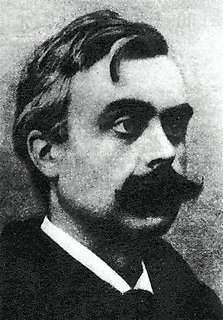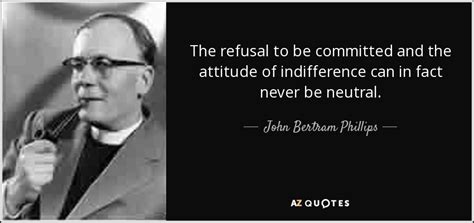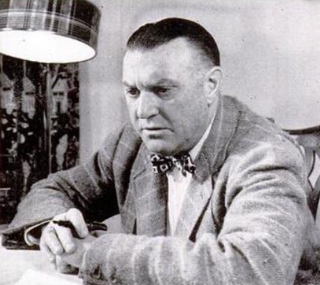A Quote by Leon Bloy
Man has places in his heart which do not yet exist, and into them enters suffering, in order that they may have existence.
Related Quotes
The problem of reconciling human suffering with the existence of a God who loves, is only insoluble so long as we attach a trivial meaning to the word "love", and look on things as if man were the centre of them. Man is not the centre. God does not exist for the sake of man. Man does not exist for his own sake. "Thou hast created all things, and for thy pleasure they are and were created." We were made not primarily that we may love God (though we were made for that too) but that God may love us, that we may become objects in which the divine love may rest "well pleased".
When we see the many grave-stones which have fallen in, which have been defaced by the footsteps of the congregation, which lie buried under the ruins of the churches, that have themselves crumbled together over them; we may fancy the life after death to be as a second life, into which man enters in the figure, or the picture or the inscription, and lives longer there than when he was really alive. But this figure also, this second existence, dies out too, sooner or later. Time will not allow himself to be cheated of his rights with the monuments of men or with themselves.
The disappointed man turns his thoughts toward a state of existence where his wiser desires may be fixed with the certainty of faith; the successful man feels that the objects which he has ardently pursued fail to satisfy the cravings of an immortal spirit; the wicked man turneth away from his wickedness, that he may save his soul alive.
It is far. But there is no journey upon this earth that a man may not make if he sets his heart to it. There is nothing, Umbopa, that he cannot do, there are no mountains he may not climb, there are no deserts he cannot cross; save a mountain and a a desert of which you are spared the knowledge, if love leads him and he holds his life in his hand counting it as nothing, ready to keep it or to lose it as Providence may order.
The universe is no narrow thing and the order within it is not constrained by any latitude in its conception to repeat what exists in one part in any other part. Even in this world more things exist without our knowledge than with it and the order in creation which you see is that which you have put there, like a string in a maze, so that you shall not lose your way. For existence has its own order and that no man’s mind can compass, that mind itself being but a fact among others.
When a man finds that it is his destiny to suffer, he will have to accept his suffering as his task. . . . He will have to acknowledge the fact that even in suffering he is unique and alone in the universe. No one can relieve him of his suffering or suffer in his place. His unique opportunity lies in the way in which he bears his burden.
The way in which a man accepts his fate and all the suffering it entails, the way in which he takes up his cross, gives him ample opportunity — even under the most difficult circumstances — to add a deeper meaning to his life. It may remain brave, dignified and unselfish. Or in the bitter fight for self preservation he may forget his human dignity and become no more than an animal
Man never ceases to seek knowledge about the objects of his experiences, to understand their meaning for his existence and to react to them according to his understanding. Finally, out of the sum total of the meanings that he has deduced from his contacts with numerous single objects of his environment there grows a unified view of the world into which he finds himself "thrown" (to use an existentialist term again) and this view is of the third order.
The lowest standards of ethics of which a right-thinking man can possibly conceive is taught to the common soldier whose trade is to shoot his fellow men. In youth he may have learned the command, 'Thou shalt not kill,' but the ruler takes the boy just as he enters manhood and teaches him that his highest duty is to shoot a bullet through his neighbor's heart - and this, unmoved by passion or feeling or hatred, and without the least regard to right or wrong, but simply because his ruler gives the word.
People who make war in order to escape slavery may possibly win....This will doubtless bring death and suffering to thousands....But people who tamely allow slavery to be imposed on them without resorting to a defensive war are inevitably doomed to years of death and suffering-and far more of each than any war would bring to them....The army doesn't exist that can annihilate men in their own land-not if they love it sufficiently.




































